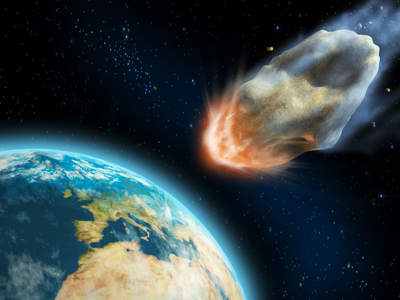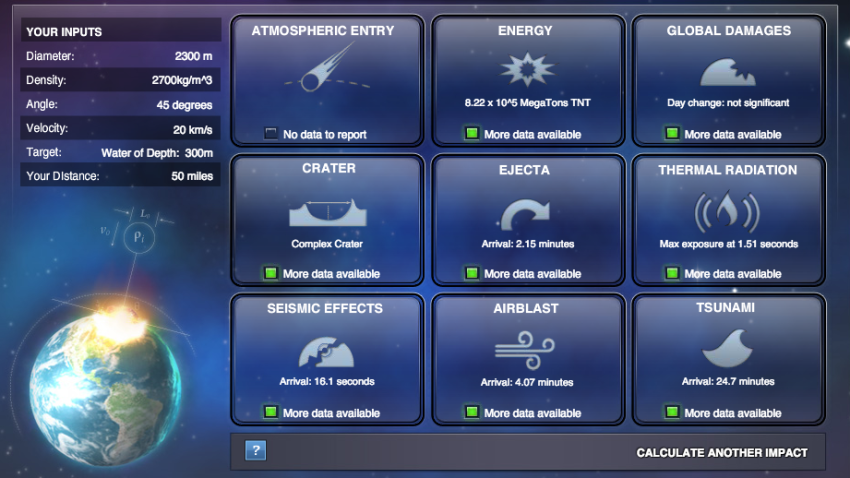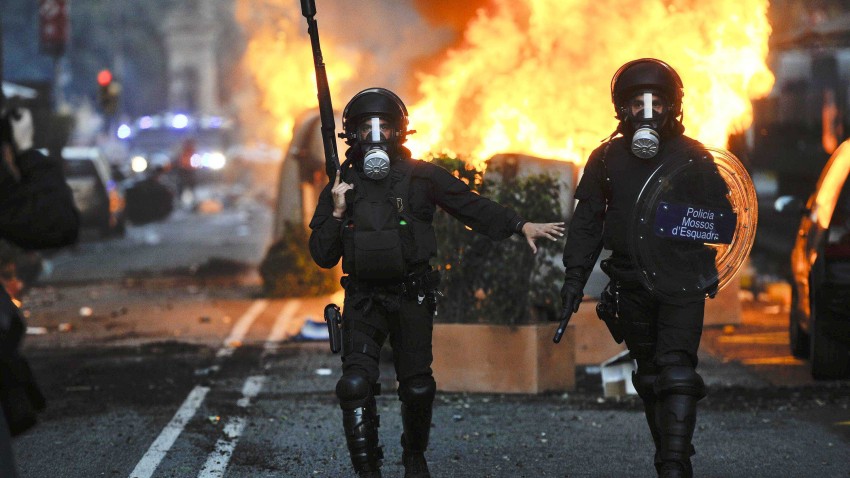What Can Really Happen if an Asteroid Strikes Earth

Asteroids are a big problem that a lot of people don’t take seriously. Unfortunately, it only takes one collision to alter the entire state of the planet, and this should alarm everyone from government officials to conspiracy theorists. The problem is becoming so real that governments are investing a lot of money and other resources in order to develop defense systems to protect us against an armageddon-style impact in the future.

A local resident shows a fragment thought to be part of a meteorite collected in a snow covered field in the Yetkulski region outside the Urals city of Chelyabinsk February 24, 2013. REUTERS/Andrei Romanov
Size Matters
The only thing that we can possibly compare the magnitude of an asteroid impact with is a nuclear holocaust. There is simply nothing else on Earth or in space that can produce such devastating alterations to our way of life in a very short amount of time. Even things like solar flares, electromagnetic pulses from space and black holes represent a threat that is virtually non-existent.
One thing that television shows and media stories do not mention enough is that there is a lot of variability in terms of the destructive forces of an asteroid impact. Sensational stories often focus on what would happen if a monster asteroid strikes and wipes out a significant portion of the human and animal races. On the other hand, the reality is that a much smaller asteroid will strike the planet long before the “big one” hits.
We’ve seen the destructive impact that a small meteorite can cause numerous times when they land near populated areas. Events in the United States and Russia have gotten attention over the years as video clips, pictures and eyewitness accounts illustrate how even a small meteorite can kill, injure, destroy buildings and even wipe out forests. These impacts tend to happen every decade or two whereas large-scale, apocalyptic events happen every 30-50 thousand years. Some say that we’re due for another “big one” soon whereas others are more hesitant with trying to predict when the next catastrophe from space will strike.
The amount of devastation that an asteroid can cause will depend on numerous factors. The composition of the rock determines its mass and weight and how well it can hold together as it passes through our atmosphere. The angle in which the asteroid or meteor enters the atmosphere also determines its speed as well as the severity of impact. Impacts that occur at a shallow angle, like a rock skimming on top of the water, are far more directional and less severe than deep impacts that occur more vertically.
Additionally, the location where an impact takes place influences its destructive potential as well. If it happens in or near a big city, millions will die immediately followed by the slow death of countless others in the extended area. An impact that occurs in water can cause tsunamis that can reach upwards of 2000 feet high, as is what happened when the one that killed more than 70% of life on Earth occurred in the Gulf of Mexico.
Your Immediate Concerns
Hopefully, we will have some kind of warning in advance before an asteroid impact would occur. Governments around the world have been beefing up “asteroid” defense systems over the past couple of decades whereas space agencies have been investing money and developing programs to track rocks in space and tag the ones that represent the greatest threat. Russia has recently gone as far as to declare that it is building an asteroid defense system that involves the use of ballistic nuclear missiles to knock out some smaller threats as they approach the atmosphere.

Whether or not these systems are effective and reliable is up for debate, however, the benefits of having advance notice would help us to prepare properly.
The most important thing to do is make sure that you are far away from the impact site. No amount of preparation is going to shield you from the impact if you are anywhere near ground zero. While there are always exceptions to the rule, there is honestly almost no way to survive a direct hit. Get away if possible.
The next concern is that the asteroid impact will be severe enough to send huge amounts of dirt and dust into the atmosphere. We’ve all heard of the term nuclear winter, and the same thing applies to an asteroid impact. These particles can block out the sun, prevent crops from growing and cool the earth. Survivors will need to figure out ways to quickly adapt and secure new food sources within months of impact or face the threat of an imminent famine. Keep in mind that this type of scenario can reduce food supplies for years, and it would impact every part of the food chain in one way or another.
Civil Unrest
A severe asteroid impact can devastate entire countries, kill economies and potentially send the world into the dark ages for an unspecified amount of time. Access to food and water will be disrupted. Massive refugee movements will occur around the world and law and order will most certainly break down with few exceptions.

Lack of Medical Care
As with any SHTF scenario, it’s almost a foregone conclusion that medical care will be limited for a long time following an impact. Access to supplies, medicine, facilities and staff will take time to materialize, especially in areas that are in the same region as the impact.
An asteroid impact is a game-changer and can do more damage than any other disaster scenario we consider. However, even if one is expected to occur, we can still give ourselves a fighting chance for survival by thinking clearly and making good decisions. The important thing is to get ahead of the curve and start taking action as soon as you know that an impact is imminent.
Don’t wait for mass throngs of people to evacuate. Get yourself situated in a safe area while “refugees” will still be welcome before the masses start to arrive. Don’t rely on government solutions to deal with the threat either. Doing so can cause most of the population to wait too long as they hold out hope before realizing that they are sitting ducks as efforts to destroy the asteroid fail.
In terms of SHTF disasters, asteroids are actually easier to prepare for, since there is usually some kind of advance warning available. However, they are ironically the most destructive and leave us the most powerless. Just remember that the chances of actually dealing with a catastrophic asteroid impact are minimal, so this is one contingency that can be put on the back burner for the time being. However, the threat is also real and the Earth will be hit once again at some point in the future. Consequently, it’s important to give it some thought and consider how you will establish a long-term survival plan as well.




